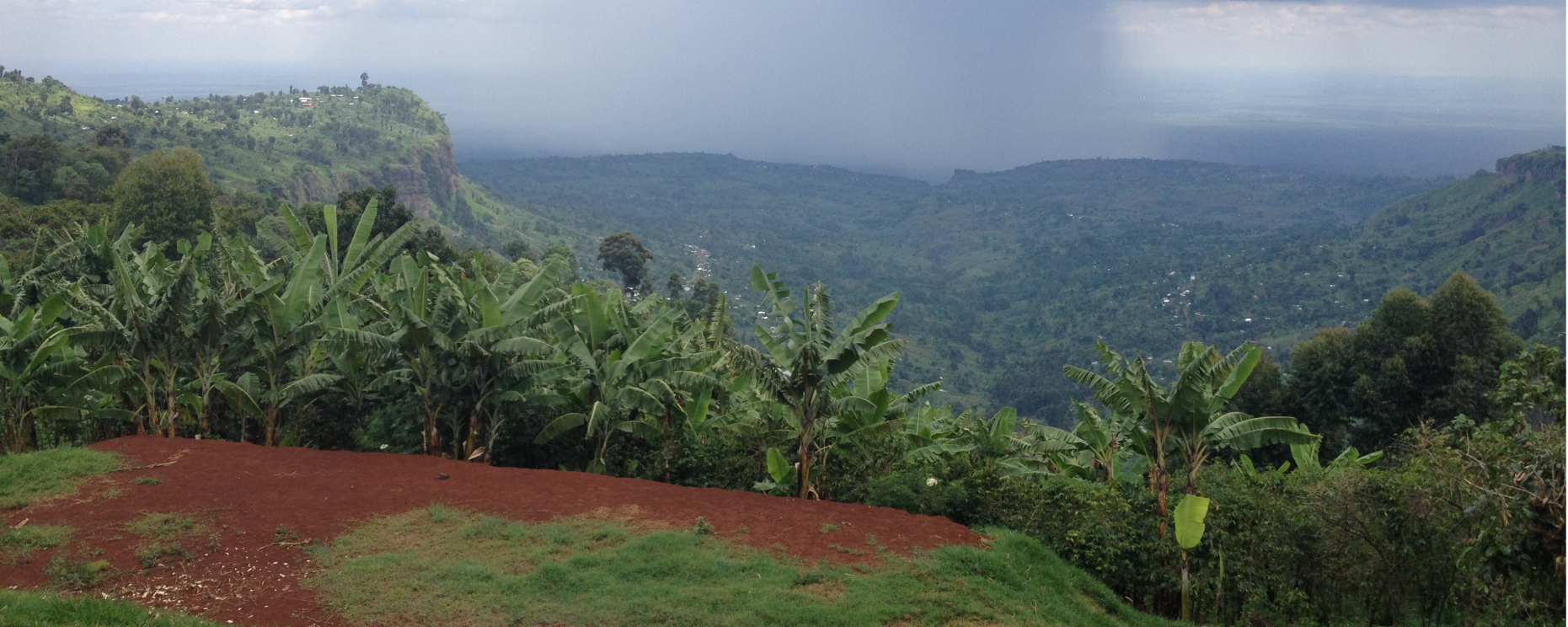Trade-offs and synergies between adaptation to climate change and ecosystem services in coffee production systems of East Africa
Project at a glance
There are worldwide approximately 4.3 million coffee producing smallholders generating a major share of developing countries’ GDP. Globally, considerable expansion and intensification of coffee plantations in recent decades has had large-scale environmental impacts, notably on biodiversity, biomass, and services such as nutrient conservation and water regulation. Coffee as a crop is highly sensitive to climatic variables such as temperature and humidity, and coffee agroforestry systems, where coffee is grown under shade trees, provide a means to mitigate and adapt to climatic extremes and longer term changes. Moreover, agroforestry coffee production has the potential to support biodiversity, retain carbon, and maintain the provision of a range of environmental services relating to soil and water quality. Nonetheless, the trend towards expansion and intensification of coffee systems is driven by short term economic returns and growing market demand coupled with the failure to acknowledge and internalize externalities. Recognizing and quantifying externalities, and valuing the ecosystem services that coffee agroforestry provide at local and regional scales are necessary for sustainable coffee production. This in itself, however, is not sufficient. Additionally, possible synergies and trade-offs among crop production, ecosystem service delivery and livelihood benefits need to be evaluated from scientific and social perspectives. Recent focus has been laid on investigating trade-offs on farm scale, but there is an increased need to better understand possible trade-offs on a regional scale and between scales in order to promote best practices to reduce trade-offs and enhance benefits across scales.
Objectives
- To develop spatially explicit physiological based coffee model for East Africa
- To analyze how different management strategies (shade management, irrigation, fertilization) change coffee growing suitability under current and future predicted climate
- To analyze possible land use changes caused by climate change and different management strategies
- To assess the impacts of land use change on ecosystem services
Expected results
- Better understanding of the trade-offs related to different scenarios of climate change adaptation and their implications for ecosystem services
- Maps showing hot-spots of trade-offs
- Identification of synergies between strategies that best meet climate change adaptation needs and the provision of ecosystem services on different scales
Methods
- Field data collection (household surveys, plot measurements)
- Land-use mapping using high resolution satellite imagery
- Development of physiologically-based coffee model
- Generation of current and future predicted climate data
- Agent-based simulation modelling
Partners
International Centre for Tropical Agriculture (CIAT), International Institute of Tropical Agriculture (IITA)
Funders
- Ecosystem Management, ETH Zurich
- International Center for Tropical Agriculture (CIAT)
- International Institute of Tropical Agriculture (IITA)
- Bundesministerium für wirtschaftliche Zusammenarbeit und Entwicklung (BMZ)
Duration of the project
April 2014 – May 2017
Contact
No database information available
